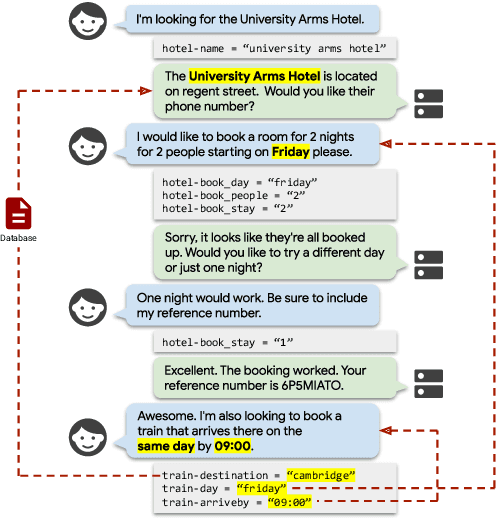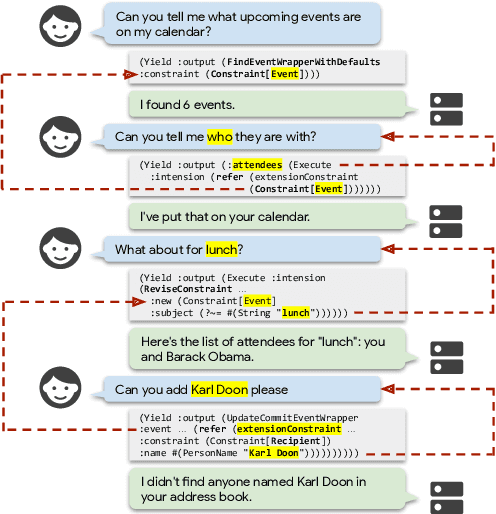What Did You Say? Task-Oriented Dialog Datasets Are Not Conversational!?
Paper and Code
Mar 07, 2022



High-quality datasets for task-oriented dialog are crucial for the development of virtual assistants. Yet three of the most relevant large scale dialog datasets suffer from one common flaw: the dialog state update can be tracked, to a great extent, by a model that only considers the current user utterance, ignoring the dialog history. In this work, we outline a taxonomy of conversational and contextual effects, which we use to examine MultiWOZ, SGD and SMCalFlow, among the most recent and widely used task-oriented dialog datasets. We analyze the datasets in a model-independent fashion and corroborate these findings experimentally using a strong text-to-text baseline (T5). We find that less than 4% of MultiWOZ's turns and 10% of SGD's turns are conversational, while SMCalFlow is not conversational at all in its current release: its dialog state tracking task can be reduced to single exchange semantic parsing. We conclude by outlining desiderata for truly conversational dialog datasets.
 Add to Chrome
Add to Chrome Add to Firefox
Add to Firefox Add to Edge
Add to Edge